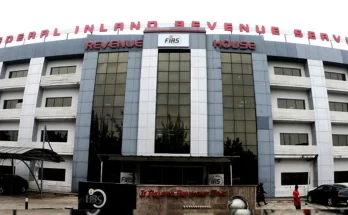- Recent statistics show that despite the huge contribution of the manufacturing sector, the sector still suffers from poor infrastructure.
- A breakdown of the top five contributing sectors in Q1 2022 shows that manufacturing as a sector contributed ₦44.56 billion in taxes.
- Stakeholders want the government to be more strategic in addressing the plight of the sector.
Nigeria’s Company Income Tax is one of the highest tax revenue pools for the nation’s tax administration. The greatest contributor to this type of tax in the West African giant is the manufacturing industry.
However, recent statistics for the National Bureau of Statistics, NBS have shown that growth in the manufacturing sector is not commensurate with its contribution to the nation’s economy. In specifics, the statistics show that the sector is suffering from a massive infrastructure deficit.
Stating the difficulty posed by the infrastructural deficit to the sector, The Centre for the Promotion of Private Enterprise (CPPE) through its CEO, Muda Yusuf, recently submits in a national publication that this deficit causes some businesses to expend more money on expenses like constructing roads to their premises.
Other avoidable expenses that these companies incur despite their huge tax contribution include spending on generating their power and even the security of their facilities.
Still talking about the losses for the manufacturing sector, CPPE pointed out the deplorable state of roads that the trailers of these manufacturing firms ply to deliver their product to the end users are costing the firm more money as they are prone to accidents caused by these bad roads even after paying the highest import duties, and company tax to the government.
In its concluding remarks, CPPPE appealed to the government to do more for a sector like the manufacturing sector that has employed much of the country’s workforce and continues to deliver huge tax returns to the tax administration.
The submissions of CPPE through its CEO are thus:
The whole essence of paying taxes is for government to provide, support infrastructure, provide security, but after paying the taxes the industries have to go back again and begin to struggle with this infrastructure,”
“Some of them even expend a lot of money to construct roads to their premises, they spend a lot of money on water, they spend a lot of money on even security.”
“if these people are the ones generating revenue for you, it’s only fair that you do something special for them so they can generate more revenue for the government.”
Like the rest of the country, manufacturers are not immune to electricity challenges, bad roads, water supply and the myriads of infrastructural needs that would have enabled them to function effectively.
Yet, being more productive would mean employing more people, and at the same time, remitting more taxes to the government, from which it can continue to meet its obligations.
“What are they getting in return? I think it’s a moral issue that needs to be addressed,”
Nigeria’s Company Income Tax: NACCIMA Reacts
The Nigerian Association of Chambers of Commerce, Industry, Mines, and Agriculture, NACCIMA in its recent submission, describes the situation as in need of dire attention.
In its own words, it described it as “a terrible paradox that the golden goose is the last to be considered in this area of benefit.” The buttresses the CPPE’s point of view that recognizes the outstanding tax returns to the government from the sector, year-in-year-out.
The Acting Director of the professional group, Opeyemi Alaran stated the need for government to get its priority straight by improving the productivity of industries to create more jobs.
He explained that this move will result in a ripple effect of affording the government to rake in more tax revenue from newly employed and a booming sector.
The above is also expected the help the government meet up with its obligations across the country.
Nigeria’s Company Income Tax: The Rise and Rise of the Manufacturing Sector
Statistics from the National Bureau of Statistic, NBS shows that in the first quarter of 2022, a breakdown of the Company Income Tax (CIT), shows that in terms of sectoral contributions, the top three largest shares in Q1 2022 were Manufacturing with 21.31 percent, Information and communication with 14.03 percent, and Financial and insurance with 12.20 percent.
On a further breakdown, the top five contributing sectors show that manufacturing as a sector contributed ₦44.56 billion in taxes, followed by Information and Communication with ₦29.34 billion, and Financial and Insurance activities with ₦25.5 billion.
Also, Mining and Quarrying chipped in ₦24.37 billion, while Public administration and defence, compulsory social security was ₦21.66 billion.
The viability of the sector was proven as even with a 1.17 percent decline from ₦45 billion paid as CIT in 2021, manufacturing remained the highest contributing sector.



